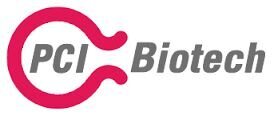Results from preclinical in vivo vaccination studies showing that the PCI technology can significantly improve therapeutically relevant immune responses accepted for publication
Oslo, 3 December 2013 - PCI Biotech (PCIB) the Norwegian biopharmaceutical company, reported today that results from in vivo studies with PCI Biotech's proprietary technology photochemical internalization (PCI) at University Hospital Zurich have been accepted for publication and is available online in Journal of Controlled Release, a high impact pharmaceutical scientific journal. The article has the title "Intradermal photosensitisation facilitates stimulation of MHC class-I restricted CD8 T-cell responses of co-administered antigen".
In the study PCI Biotech's proprietary photosensitiser has been mixed with a model vaccine antigen and the mixture has been injected into skin of mice, followed by illumination of the injection site. The researchers tested the ability of PCI to enhance the vaccine induced stimulation of so-called cytotoxic T-cells in the animals. Cytotoxic T-cells are immune cells that are consideredto be of primary importance for killing tumour cells after therapeutic cancer vaccination. The results of the study show that the use of the PCI technology substantially increased the amount of antigen-specific cytotoxic T-cells, an effect that could be very important for improving the efficacy of several different approaches under development for therapeutic cancer vaccination.
Per Walday, CEO of PCI Biotech said: "This is another well designed study that shows the potential of the PCI technology as a versatile adjuvant technology for improving the effect of vaccines. The type of immune response induced by the PCI treatment is considered key for successful therapeutic vaccination. Our aim is to establish collaboration agreements with leading companies in the innovative emerging field of therapeutic cancer vaccination."
About therapeutic cancer vaccination
The potential of therapeutic cancer vaccination - vaccines that treat cancer by inducing or strengthening an immune response - has long been recognised by the pharmaceutical industry. The past few years there has been a renewed focus on such vaccines, and the first vaccine was approved by FDA in 2010. Since then, pharmaceutical companies have announced a large number of development milestones for new therapeutic cancer vaccines, and the market for such vaccines is projected to grow to a value of approximately $8 billion by 2019 (GBI Research, March 2013). Thus, this is a very promising area; however there are still important unsolved issues and some companies have recently reported failed clinical studies. One important issue is that vaccination with protein or peptide antigens often fails to generate the strong cytotoxic responses that are needed for successful therapeutic vaccination. An important reason for this probably is insufficient access of such antigens to the correct machinery inside the antigen presenting cells. Antigens typically enter these cells through endocytosis and PCI may be utilised to deliver these antigens to the immunisation machinery that is responsible for the sought-after cytotoxic immune response; through so-called MHC class-I-restricted antigen presentation.
